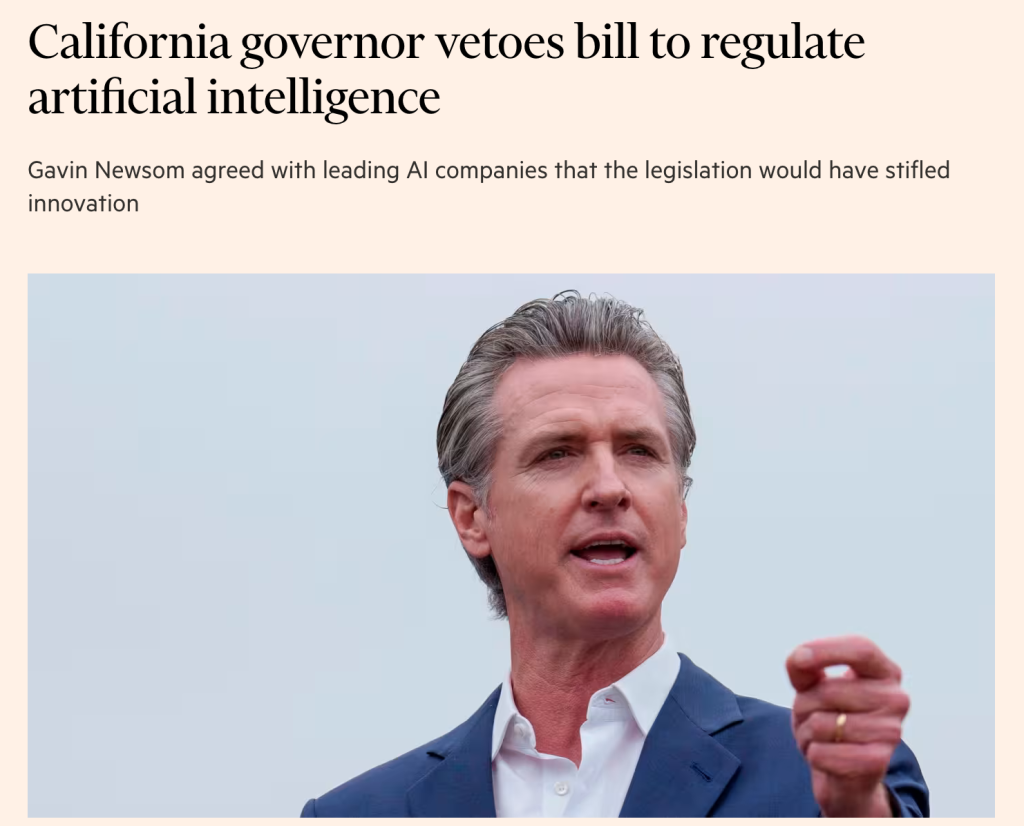This is just terrible!
Author Archives: Editor
Why is Gavin Newsom not releasing his tax returns?

Will Gavin Newsom run for president in 2028?
Is he even electable?
Gavin Newsom has “a large Republican family”
It is interesting (and telling) that Newsom was married to Kimberly Guifoyle and now claims his wife (who was a registered Republican and has a family that hosted a tRump benefit) is still a Republican!
https://www.kcra.com/article/gavin-newsom-jennifer-siebel-newsom-republican/62897960
Newsom signs into law legislation. What effect will it actually have?
WHY have we been inflicted with this moron, this clueless frat boy, as governor?
Note: Wiener in the background. He will go far in this clueless, rapacious, corrupt wealth-protecting system. 🙁
We are not looking at the root causes of this malaise. Clue: It starts at the top!
Newsom vetoes bill to control AI!
Gavin Newsom does not want undocumented migrants owning homes!
The question is: When will we start recognizing realities? These people are not leaving, and we need reform. But will we get it under Democrats?
https://www.politico.com/news/2024/09/06/newsom-california-undocumented-immigrants-homes-00177748
Can Gavin Newsom waste taxpayer dollars in a better fashion?
$200,000 to a photographer! HE should pay for this out of pocket! Outrageous!
I feel ill!
https://www.politico.com/news/2024/08/09/gavin-newsom-celebrity-photographer-00173482
Gavin Newsom capitalizes on using wildfires to hone his image!
Quite interesting!
https://www.politico.com/news/2024/08/01/gavin-newsom-wildfire-response-00172332
Newsom urges a new front of the war on the unhoused!
https://apnews.com/article/california-homeless-encampment-newsom-7d4478801de6e9f8a708c7c7c6ef3e5f

